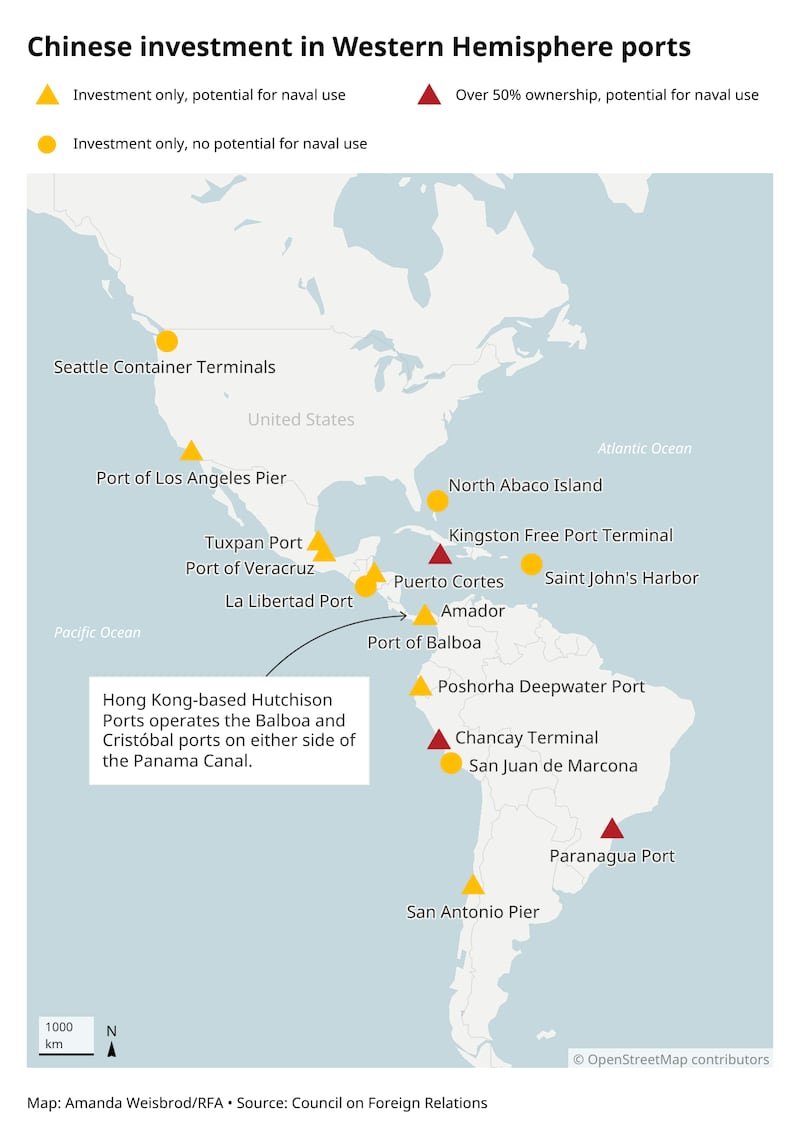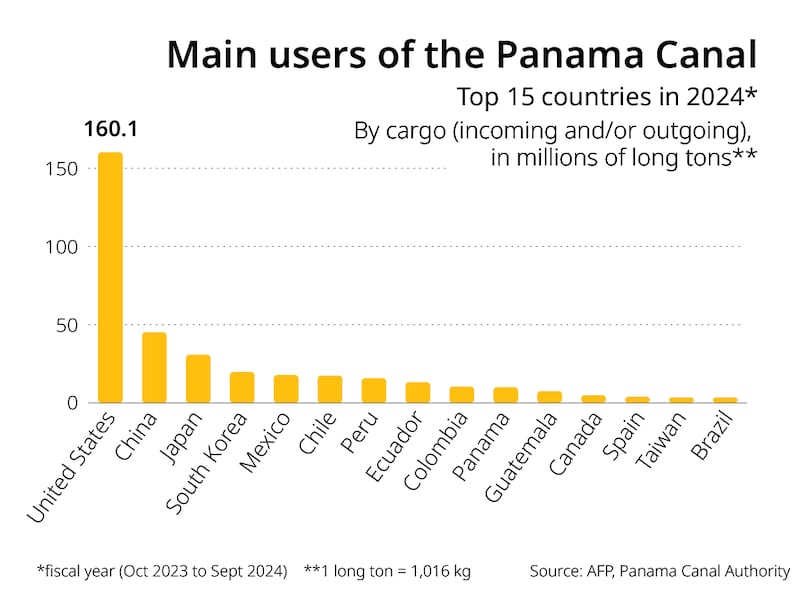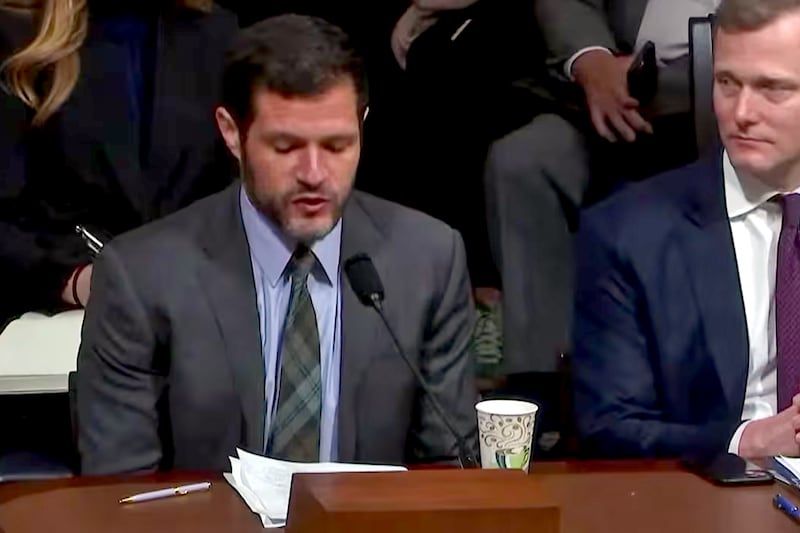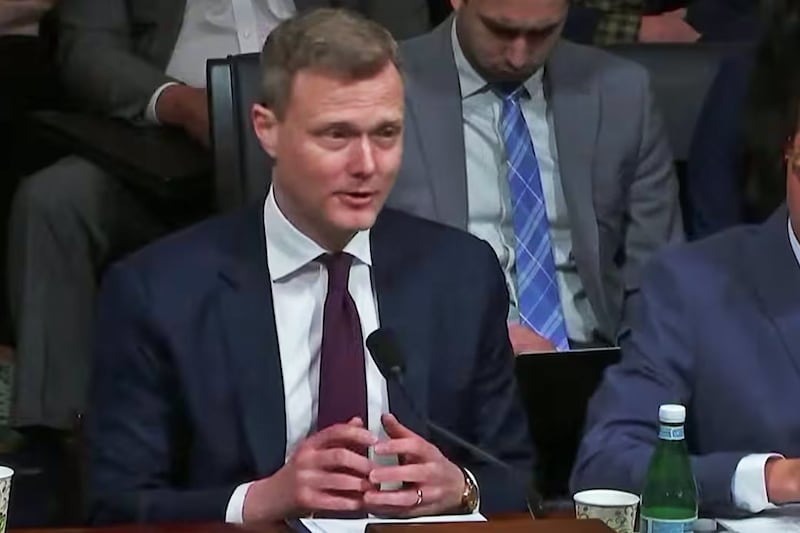Calls are growing Washington for action to loosen Beijing’s influence stemming from Chinese and Hong Kong companies' control over key infrastructure on the Panama Canal and other port facilities in the Western hemisphere.
At a recent meeting of the U.S. House of Representatives Homeland Security Subcommittee on Transportation and Maritime Security, Chairman Carlos Jimenez warned that Beijing has “a strategic position over one of the world’s most important waterways,” referring to the Panama Canal.
He said this gives the Chinese Communist Party an opportunity “to exert influence over commercial shipping, gather intelligence on American and Allied vessel traffic, and potentially restrict the mobility of our Navy in a time of crisis.”
Almost half of the leading container ports outside of China have some Chinese ownership or operations, experts told the hearing.

Panama has recently announced a government audit of ports owned by Hong Kong billionaire Li Ka-shing’s CK Hutchison conglomerate, and U.S. Secretary of State Marco Rubio has threatened Panamanian leader José Raúl Mulino with potential American retaliation if his country doesn’t immediately reduce Chinese influence over the canal.
“While Panama has recently announced an audit of Hutchinson ports, that’s simply not enough,” Jimenez told the hearing. “We don’t need an audit. We need action.”
“The United States cannot and will not accept the scenario where a foreign adversary, one that openly seeks to undermine our global standing, controls infrastructure critical to us, homeland security, military readiness and economic stability,” he said.
He said U.S. allies should distance themselves from China, including from Chinese state-owned enterprises.

While Mulino insists that the neutrality regime under the Panama Canal treaty has not been violated, two Panamanian lawyers have filed a lawsuit with the country’s supreme court, arguing that the contract allowing Hutchison, a subsidiary of CK Hutchison Holdings, to operate terminals in Balboa, on the Pacific side, and Cristobal on Atlantic side of the Panama Canal is unconstitutional, World Cargo News reported on Feb. 5.
Dual-use military and civilian operations
Experts told the Homeland Security Committee on Feb. 11 that there are concerns around dual-use military and civilian operations in any port with a Chinese corporate presence, not just in Panama.
Chinese companies have established full or partial ownership of port facilities in seven countries in the Western Hemisphere: the Bahamas, Brazil, Jamaica, Mexico, Panama, Peru and the United States.
RELATED STORIES
EXPLAINED: Does China control the Panama Canal?
Trump’s China tariffs include Hong Kong, ending city’s separate status
China dominates in overseas ports: report
China COSCO Shipping Corp. and China Merchants Group -- both state-owned conglomerates owned and controlled by the Chinese government -- hold eight of those investments, with Hong Kong’s CK Hutchison holds seven, according to testimony by Isaac Kardon, Senior Fellow for China Studies at the Carnegie Endowment for International Peace.
“China’s presence in U.S. ports presents unquantified but material risks to critical maritime and transportation infrastructure,” Kardon told the meeting.
“The more pressing concerns involve vulnerabilities introduced by Chinese made equipment and software embedded in port systems,” he said. “Even facilities not owned or operated by Chinese firms, often rely on [Chinese-made] made technologies, for example, ship-to-shore cranes.”

“Under Beijing’s highly acquisitive data governance regime and comparatively high levels of control over [Chinese] firms, these systems enable intelligence collection and surveillance and may cause delay or disruption to the critical operations of us,” Kardon said.
But he warned that “unwinding it recklessly will do more harm than good.”
Between 2010 and 2019, Chinese companies plowed US$11 billion into overseas ports and around US$130 billion into subsidies for its shipping companies $130 billion, according to a recent analysis by the Council on Foreign Relations.
One distinctive feature, according to written testimony from Ryan C. Berg, Director of the Americas Program at the Center for Strategic and International Studies, is that more than half of China’s ports tend to sit on major shipping lanes and strategic chokepoints.
China-backed companies now operate port terminals in at least three locations in Mexico, the Hutchison Ports in the Panama Canal along with a recently opened megaport in Chancay, Peru, Berg said, citing plans for a deepwater port in St. John’s Harbor, Antigua and Barbuda.
Almost half of the leading container ports outside of China have some Chinese ownership or operations, and “Beijing intends to become a “pier competitor” by setting up a string of dual-use ports that can serve as an extensive international network of infrastructure for People’s Liberation Army vessels,” he wrote.
China’s military-civil fusion strategy could also bring commercial espionage and military security risks, including radar and GPS jamming, physical blockades, and even containerized weapon systems, Berg said.
Threats to American security
Meanwhile, former CIA analyst Matthew Kroenig warned that China’s port investments, including those in Peru and Panama, “pose a number of threats to U.S. homeland security.”
“China could restrict or block access to ports, threatening American trade and economic wellbeing,” Kroenig testified. “In the event of a crisis or war, China could hinder the passage of American naval vessels, undermining American war plans.”

China could also use deep water ports to host People’s Liberation Army Navy vessels, enabling the projection of military power
into the Western Hemisphere, warned, adding that Chinese-operated ports are already used to facilitate the shipment of fentanyl precursors to the United States.
Kroenig called on Washington to put pressure on its neighbors to adopt a “de-risking” strategy toward China, including “hard decoupling” from China in sensitive areas like critical infrastructure, while providing them with viable alternatives.
Berg called for a “port buyback” scheme financed by the U.S. International Development Finance Corporation and multilateral financial institutions “to help countries terminate agreements early and entice more transparent operators to bid on concessions.”
Cary Davis, President & CEO of the American Association of Port Authorities, also called on the United States to offer alternatives to Chinese investments.
“If we want to counter Chinese influence at ports and secure a safe and prosperous economic future, we must provide a strong, attractive alternative through robust American investment,” he told the Committee.
Congress could also offer financial incentives to trusted allies to enable them to purchase cargo-handling equipment not made in China, he said.
Translated by Luisetta Mudie. Edited by Malcolm Foster.
